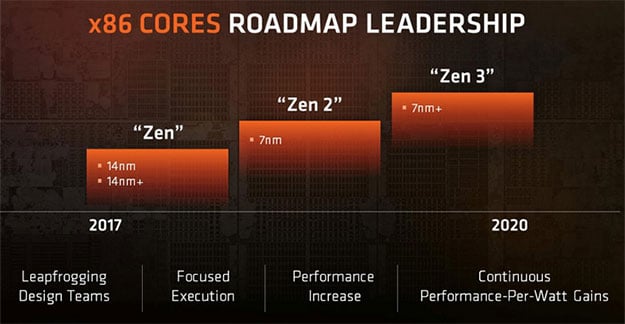AMD Confirms AM4 Socket Will Support Future Ryzen Processors Through 2020
One of the most frustrating things about a building a PC is the pace at which technologies evolves, leaving you with a collection of obsolete parts sometimes only weeks after purchasing them. This can be especially infuriating when AMD or Intel introduce a new processor and CPU socket. Well, if you build a Ryzen system, one thing you won't have to worry about is AMD abandoning its AM4 platform, at least not for a few years. AMD is committed to using the same socket for years to come, which it has said before and recently reiterated in an interview.
In a video posted to Facebook, James Prior, Senior Product Manager for AMD's Client Computing Group for Desktop CPUs, sits down for a chat with OverclockersUK. During the question and answer session, Prior talked about the future of AMD's Zen architecture, noting that Ryzen 2 will use the same AM4 socket as current generation Ryzen processors. He also reaffirmed AMD's plan to AM4 will remain relevant through 2020.
While this is not new information, it is nevertheless welcome news to hear that AMD is still planning to use the same socket for several more years. Hopefully that also means that future AM4 processors will work in today's motherboards with nothing more than a BIOS update. That's not something to take for granted—on the other side of the tracks, Intel created a new Z370 chipset for its socket LGA 1151 Coffee Lake desktop processors. Kaby Lake also uses the LGA 1151 socket, but if you want to run a Coffee Lake chip, you have to upgrade to a Z370 motherboard. Likewise, you can't plop a Kaby Lake processor into a newer Z370 motherboard, so Intel is essentially forcing an entire platform upgrade, even though the socket is the same.

Getting back to AMD, previous roadmaps have pointed to Zen 2 releasing sometime next year, followed by Zen 3 in 2019. For Zen 2, AMD will shrink the manufacturing processor down to 7 nanometers.
"Our goal is to be very competitive in terms of our long-term roadmap. If you look at the foundry’s 7nm roadmap compared to some of the other technologies out there it’s actually really competitive. I think the gap between the foundry roadmap and the Intel roadmap has gotten a lot closer. Our goal is to be aggressive with 7nm technology. We will be doing tape outs later this year and as we get closer to production will give more insights there. But the idea is to be more competitive throughout the portfolio," AMD Dr. Lisa Su said earlier this year at the 5th annual J.P. Morgan Global Technology, Media, and Telecom Conference.
It remains to be seen what manufacturing challenges AMD might run into as it aggressively pushes a 7nm tape out. Intel, for example, has had a rough time getting to 10nm with Cannon Lake, which after multiple delays is finally on track to launch this month, followed by volume shipments sometime next year. AMD, meanwhile, is aiming to hit 7nm on both its CPU (Zen 2) and GPU (Navi) architectures, with shipping products by the end of 2018.
Top and Thumbnail Image Source: Facebook via OverlockersUK


